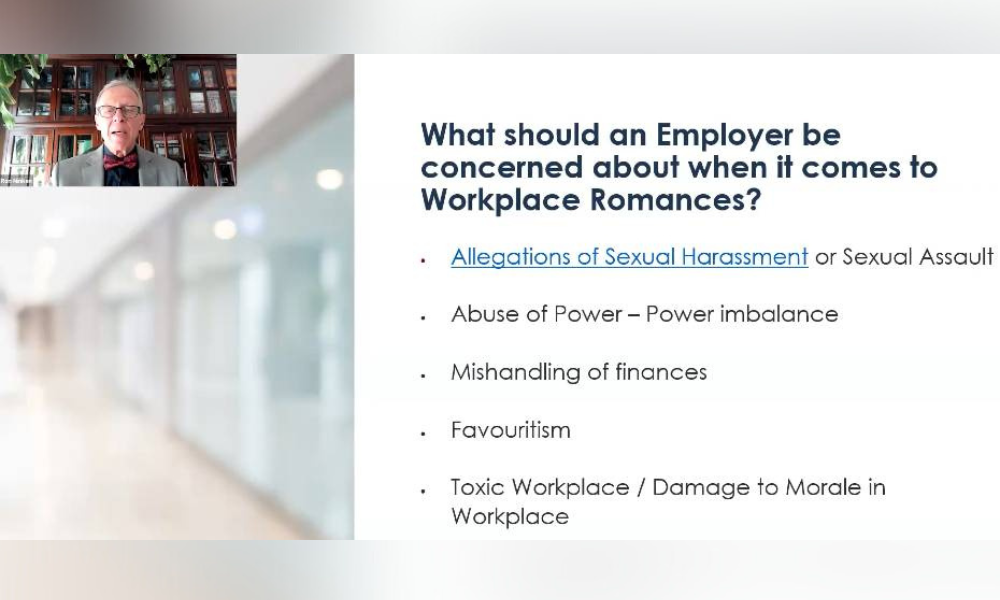'To consent, there must be true consent with no fear or retribution'

One-third of Canadians are either romantically involved with a coworker or have been in the past, according to a recent survey by ADP Canada.
To help organizations manage this potentially litigious occurrence, employment lawyers Ronald Minken and Tanya Sambi of Minken Employment Lawyers recently sat down with Jeffrey Smith of Canadian HR Reporter in a webinar to discuss some of the risks inherent with workplace romances that can lead to trouble for those involved or the employer’s workplace in general.
Basically, workplace romances are legal and cannot be quashed, says Minken. But there are some questions that need to be addressed when it happens.
“There is no legislation or law that says otherwise but workplace romances can present significant consequences to both employers as well as employee. The biggest risk to employers will be allegations of sexual harassment, or even worse, sexual assault. This could lead to court proceedings or a human rights application against the employer, and leave the employee with significant legal costs. You can also have significant reputational damage for anyone involved.”
The former mayor of Toronto, John Tory, was found to be guilty of violating the workplace code of conduct, after he engaged in an affair with a subordinate employee.
Beware the ‘slippery slope’ inherent in workplace relationships
With this in mind, what should an employer be considering when it comes to workplace romances?
There are a number of areas to be aware of, according to Minken.
“Number one: potential harassment and assault claims. Number two: abuse of power. And certainly whether a relationship can ever be consensual, when there was an imbalance of power, the subordinate dating the superior,” he says.
“It’s a slippery slope between a consensual relationship and allegations of sexual harassment and sexual assault. The subordinate may not be comfortable saying no. To consent, there must be true consent with no fear or retribution. So arguably, it doesn’t exist with dating a subordinate and in an employment relationship.”
Employers should tread carefully in these areas because harm to the morale of the workplace might arise, says Minken, as well as allegations of favouritism.
“This makes these types of relationships are very risky for the employer and the parties involved.”
The end result might be a “toxic workplace spreading rumors, defamation, taking sides, which of course causes divisions,” says Minken.
Prepare a written document on this issue
To address these potential pain points, a policy statement is the best bet, according to Sambi.
“Employer should implement a number of policies, the first being a workplace romance policy. They should state that while romances are permitted, employees must disclose the workplace romance and number two, disclosure may result in a change of reporting structure, the employee’s role, or the location where they work,” she says.




